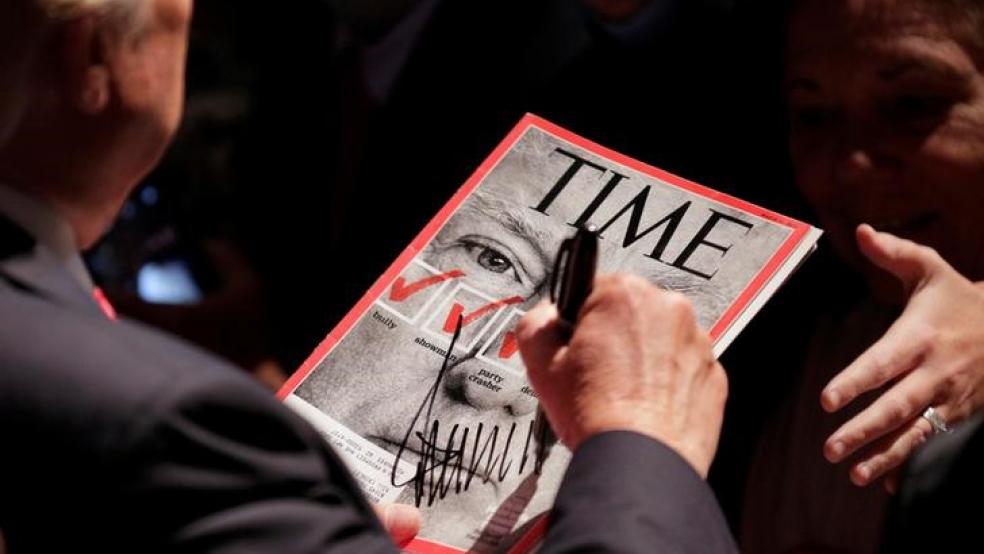WASHINGTON (Reuters) - A U.S. judge in Ohio ordered Republican presidential candidate Donald Trump's campaign on Friday not to intimidate voters as voting-rights advocates scored a string of last-minute victories in several politically competitive states.
The ruling by U.S. District Court Judge James Gwin creates the possibility of fines or jail time for Trump allies who harass voters, a significant victory for Democrats who had worried the real-estate mogul was encouraging supporters to cause mayhem at the polls on Nov. 8.The ruling also deals a blow to a Trump-aligned "exit poll" that seeks to mobilize thousands of supporters.The Trump campaign appealed the decision.On the campaign trail, Trump has warned that the election may be rigged and has called on supporters to keep an eye on voting activity for possible signs of fraud in large cities. Democrats have launched a legal blitz in Ohio and five other battleground states to prevent that from happening. They are also trying to stop a paramilitary group, the Oath Keepers, from conducting its own monitoring operation. Numerous studies have found that U.S. voter fraud is exceedingly rare.Voting-rights advocates also won legal victories in three other states on Friday, building on a string of decisions that have rolled back election restrictions across the country.In Arizona, a federal judge suspended a state law that prohibits advocates' ability to collect absentee ballots."Having more options to turn in your ballot ensures that more people take part in the democratic process," said Spencer Scharff, voter protection director of the Arizona Democratic Party.In North Carolina, a judge ordered election officials to restore the voting rights of thousands who had been removed from registration lists in recent weeks.And in Kansas, a state court blocked a dual-registration system that would have prevented 20,000 registered voters from casting ballots for local offices because they were unable to prove U.S. citizenship.The Ohio ruling does not prevent the state Republican Party from sending trained volunteers into polling places to make sure election laws are being followed. However, it does impose restrictions on Trump supporters who take it on themselves to monitor voting activity, saying they may not interrogate voters within 100 feet of a polling place, block them from entering, or photograph them as they come and go. Many of those activities are already illegal, but the judge's order means that anybody who engages in them could be held in contempt of court, exposing them to additional civil or criminal penalties."It backs the law with the power of contempt," said Rick Hasen, an election-law expert at the University of California at Irvine.The order also deals a blow to a Trump-allied "exit poll" that aims to mobilize supporters to canvass voters in an effort to sniff out instances of voter manipulation.The organizer of that effort, Republican operative Roger Stone, told Reuters he would fight the ruling regardless of the outcome of the election."The Democrats' lawyers have perjured themselves and perpetrated a fraud before the court," he wrote in a text message.The order also applies to Democrats, who have focused their efforts on making sure their supporters can vote."With this decision, Ohioans can feel confident that they will be able to make their voices heard in this election," Ohio Democratic Party Chairman David Pepper said in a prepared statement.The Trump campaign did not respond to a request for comment. (Additional reporting by Daniel Levine, editing by Kevin Drawbaugh, Andrew Hay and Bernard Orr)Ohio judge warns Trump campaign as voter advocates score court wins

Rick Wilking



